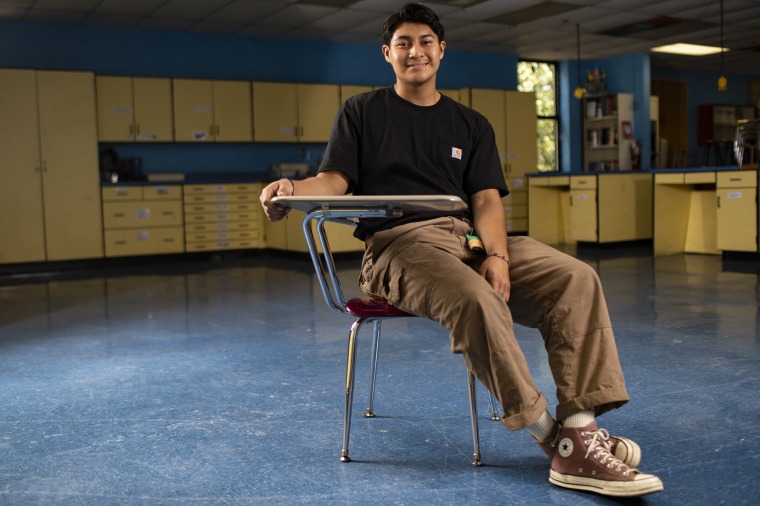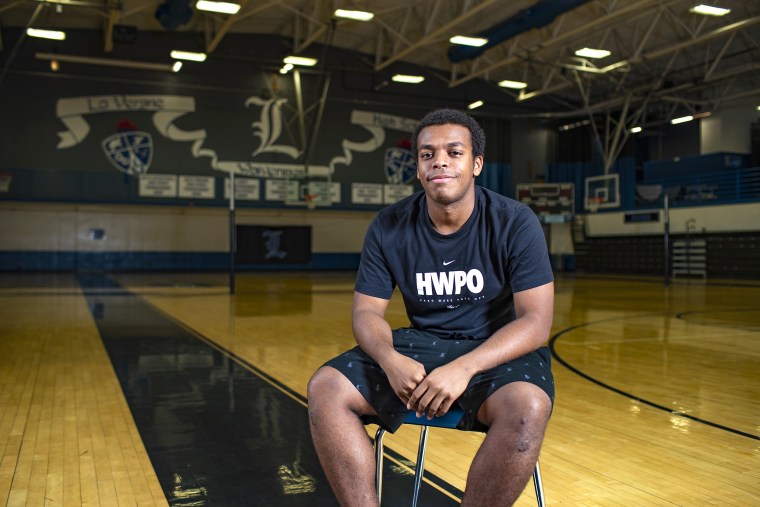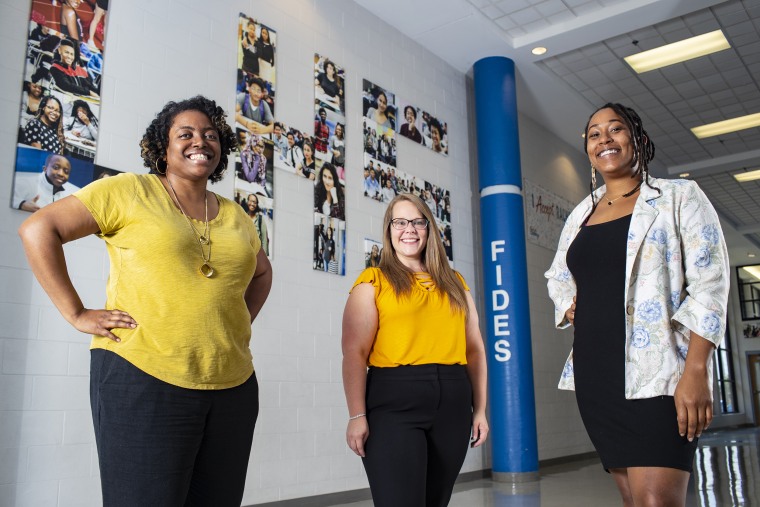Report, produced by The Hechinger, is a non-profit independent news agency focused on inequality and innovation in education.
Even as freshmen nervously arrive on campus for the fall semester, policymakers say the number of high school graduates willing to invest their time is "worrisome." They are grappling with what they say has been a decline and the money needed to go to college.
The lesser-known backlash against higher education has caused an unprecedented drop in enrollment. Experts now warn that the decline, especially where the decline is most severe, is likely to reduce people's quality of life and the country's economic competitiveness.
"Except during wartime, the United States has never seen a period of such declining education," said Michael Hicks, director of Ball State University's Miller College of Business and Economic Research Center. Stated. work.
Universities now have 4 million fewer students thana decade agoand more observers say Covid-19 The number of Americans under the age of 18 and strong labor markets are directly drawing young people into the workforce.
But while the pandemic certainly made things worse, the recession was there even before it began. Demographics alone cannot explain the magnitude of this decline. And statistics refute the argument that recent high school graduates are getting jobs instead of going to college: labor force participation among 16- to 24-year-olds is higher than before Covid hit Low, reported by the Bureau of Labor Statistics (BLS).
Focus groups and polls point to another reason why sharp downward trends are not easy to resolve. These include widespread and rapidly growing skepticism about the value of degrees, impatience over how long it takes to earn a degree, and costs that ultimately exceed many people's ability or willingness to pay.
The percentage of high school graduates entering college in the fall after high schoolhas declined significantly and steadilynationwide. The highest value was 70. % in 2016, he's up to 63% in 2020, according to the National Center for Education Statistics, the latest year for which figures are available.
Some states are even worse, but not all states have data for the same time period.
For example, the percentage of Tennessee high school graduates who go straight to college has fallen to 53%—down 11 percentage points from 2017. Indiana dropped to 53. % in 2020 is down 12 percentage points from five years ago, a state of pace Higher Education Commissioner Chris Lowery called "alarming."
In West Virginia, 46% of 2021 high school graduates went to college the following fall. 10 percentage points below the state's 2010 high of 56%. 54% in 2021. Michigan high school graduates continue on to college,down 11 percentage pointsfrom 2016.
In Arizona, 46% of 2020 high school graduates went to college the following fall.Down from over 55%in 2017. In Alabama, the college-going rate among recent high school graduates fell to 54% in 2020,down 11 pointsfrom 2014. And in Idaho, the college-going rate plummeted to 39%, down 11 percentage points from 2017.
Americans are increasingly skeptical about the need to go to college. According to a survey by the Strada Education Network, a non-profit that studies and financially supports ways to expand access to higher education,adults who say a degree is worth He is now less than 1 in 3.
"That conversation came up more often: 'Is it worth it?'" said Jennifer Klein, a counselor at Festus High School in Festus, Missouri. Universities decreased 6 percentage points from 2017 to 61%. "More and more parents are saying 'no.' You're not going to do that. You're not going to a four-year college."
We just don't focus on education like we do," said Amanda DeBord, an adviser to the statewide program. In Tennessee she is called Advise TN. "It feels like it's been slipping for years."
College Advice TN student Eva Valladares said her classmate's parents, who live in the Nashville suburb of La Vergne, told her, 'I have to go to college. If you don't, you're no good." ass. But that has changed. ``They don't think about it anymore.''

This is due to growing dissatisfaction among recent colleges and graduates about the value of their education. It's getting worse.
More than four in 10 bachelor's degree holders under the age of 45 agree thatthe benefits of an education outweigh the costs, according to a Federal Reserve study.In another survey by Cengage, an educational publishing and technology company, only a quartersaid they would follow the same educational path if they could start over
A study by the Indiana State Board of Higher Education found that many bad reviews were passed on to younger siblings and classmates. For them, family and friends arethe most trusted sources of information about whether to go to college
while the Biden administration will forgive all or part of their student loan debt. The months-long debate has had the unintended result of reminding prospective learners how much they used to have to borrow to pay for college.
There is also the fact that many parents are still paying off their student loans.
"There is a perception that it is anti-elitist, anti-institutional, and that the costs are out of control."
Stephanie MarkeN , gallup
From 2015 to 2019, education outperformed any other institution as measured by the Gallup polling agency. lost trust. Considering this list includes the president, Congress, big business, and the criminal justice system, it's an incredible drop in trust.
"There is a perception that it is anti-elitist, anti-institutional, and that the costs are out of control," said Stephanie Marken, a partner in Gallup's education division.
This problem has been evident for years, but in general universities have done little to address it.
They continue to advertise prices that few consumers will actually pay, but many will deter from signing up. They bury students in bureaucracy. This is particularly confusing for the growing number of applicants whose parents have never been to college. They also often fail to make clear links between academic disciplines and careers, or keep up with the demands of a rapidly changing labor market.
In fact, a degree still pays off. According to the BLS, a worker with a bachelor's degree earns 67% more than someone with only a high school diploma. More than half of the 'good jobs' — jobs that pay at least $35,000 for workers under 45 and $45,000 for workers aged 45 to 64 — must have a bachelor's degree, Georgetown University Education Center Workforce Estimates.
However, since the start of the pandemic, the proportion of young people who think they need education after high school from the age of 14 to the age of 18 has decreased from 60% to 45%., Nonprofit Educational Credit Management Corporation.
Even high school graduates planning to go to college admit to having doubts.

"My life has been all about sports, but at the same time, I wondered, 'Is college really right for me? is no different," he said. Dillon Phillips, who played basketball at La Vergne High and hopes to turn pro, starts at community college to "give him time to prepare" for four-year college.
According to her Thea Cole, who also counsels students for Advise TN, the pandemic has only deepened the fears of students who are already struggling with confidence and skeptical of college. "Their GPA suffers," her colleague Portia Cook said more outspokenly.When things start to get complicated, that's it.
It's not just recent high school graduates who are turning their backs on higher education. The number of Americans over the age of 24 who are attending or returning to college for the first time is also steadily declining. In five years he has decreased by 12%.

In an attempt to find out why so many people are no longer attending college, some states have started focus groups and surveys. and the complexity of obtaining higher education is partly to blame for the reluctance to go through with it. In
Indiana, 70% of residents said he felt "overwhelmed" trying to understandstate's financial aid options. In Tennessee, many high school students said they did not believe they were eligible for state financial assistance.
Among other findings from the Indiana Higher Education Commission: Some Americans these days aretold by ignorant eliteswhat to do Whether or not you should go to college that is hesitant about the idea.
A widening disparity in college enrollment could widen the rifts that already polarize American society, Hicks said.
"Los Angeles, he's D.C., places like Chicago will continue to attract a lot of college graduates," he said. ``Where there is a lower share of college graduates, economic conditions will be more uncertain and wages will be lower.'' Falling Countries with an average 177% increase in bachelor's degree completion rates during this period are far ahead, according to an analysis by the Institute of Research at the University of Pennsylvania.
Even before the pandemic, the countryfaces a shortage of more than 9 million college-educated workersover the next decade, with nearly every state and lost nearly $1.2 trillion in economic output. , the center-right American Action Forum estimated.
Economic rivals "he can only hope the proportion of [American] adults going to college drops by 12 percentage points," Hicks said. "It's literally cataclysmic."


